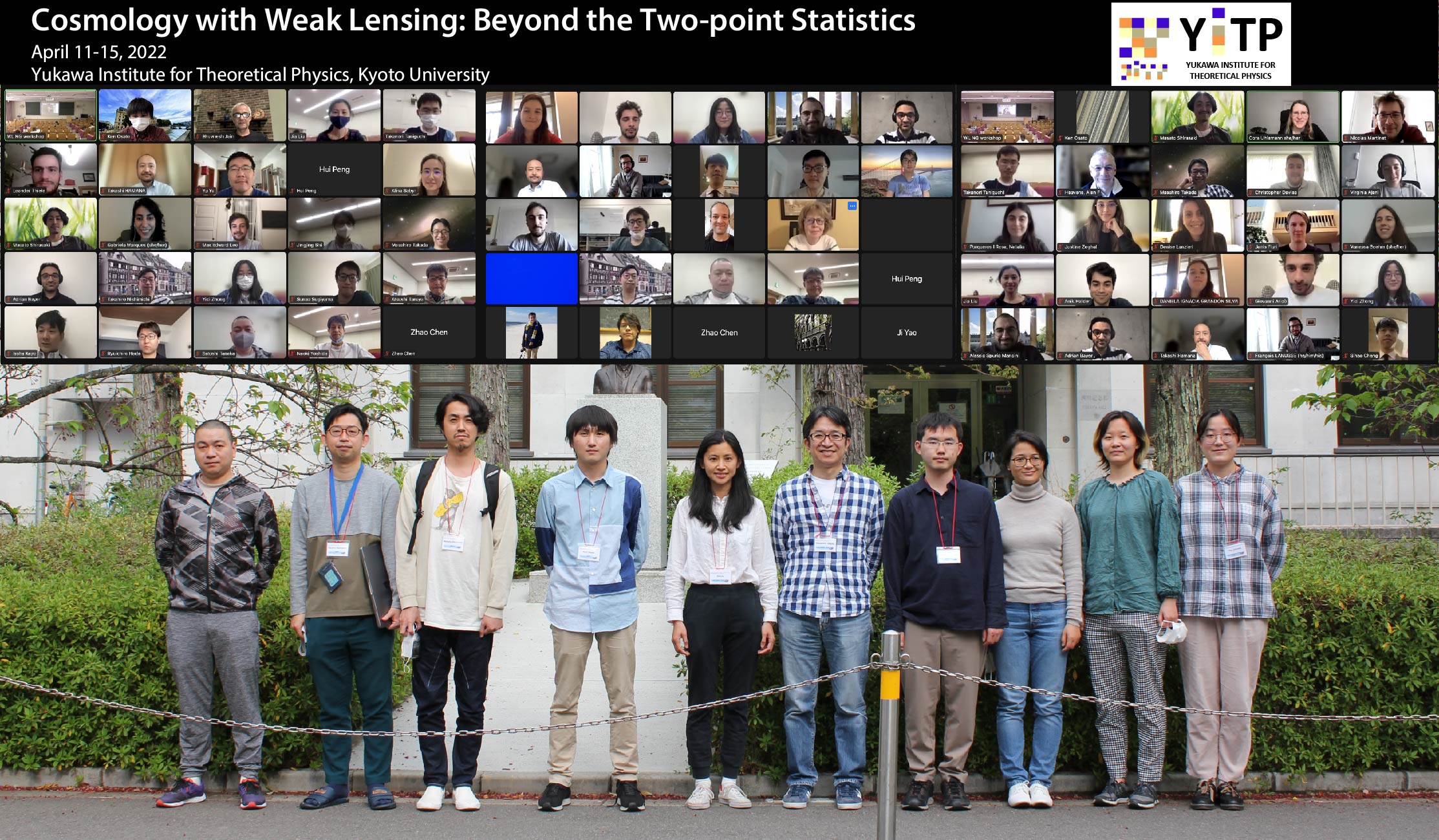
Welcome!
Weak gravitational lensing is one of the most important techniques to map out the large-scale structure in our universe. Ongoing Stage-III weak lensing surveys, such as the Subaru Hyper Suprime-Cam (HSC), Dark Energy Survey (DES), and Kilo Degree Survey (KiDS), have already achieved competitive cosmological constraints. While two-point statistics, i.e., two-point correlation function and power spectrum, have been the default method in analyzing weak lensing data to date, they are inadequate in extracting all the information expected from upcoming State-IV surveys that probe deep into the small, nonlinear scales, such as the Vera Rubin Observatory Legacy Survey of Space and Time (LSST), Euclid Space Mission, and the Nancy Grace Roman Space Telescope.
Weak lensing higher-order (non-Gaussian) statistics and machine learning methods are expected to unveil new cosmological and astrophysical information and enable us to calibrate systematic effects. This workshop aims to explore pathways to optimize Stage-IV weak lensing analysis,
with a focus on methods beyond the two-point statistics. We invite experts on theoretical modeling, numerical simulation, machine learning, and systematics (baryons, intrinsic alignment, photo-z, etc.) to present their latest results.
The format of this workshop is hybrid, including both online participants (all time zones are welcome) and local participants (likely limited to within Japan, due to the current Covid-19 related boader restrictions). To combat ``Zoom fatigue'', we will experiment with very short and simple talks (5 slides, 10 min presentation + 5 min discussion), with a morning session (Asia/Americas friendly) and an afternoon session (Asia/Europe friendly). The rest of the day will be devoted to focused discussions and group hacks.

Scientific organizing committee
- Jia Liu (Kavli IPMU, The University of Tokyo; co-chair)
- Ken Osato (YITP, Kyoto University; co-chair)
- Zoltan Haiman (Columbia University)
- Joachim Harnois-Déraps (Newcastle University)
- Bhuvnesh Jain (University of Pennsylvania)
- François Lanusse (CEA Saclay)
- Masahiro Takada (Kavli IPMU, The University of Tokyo)
- Anqi (Angela) Chen (Kavli IPMU, The University of Tokyo; hack coordinator)
Local organizing committee
- Ken Osato (YITP, Kyoto University)
- Takahiro Nishimichi (YITP, Kyoto University)
- Atushi Taruya (YITP, Kyoto University)
